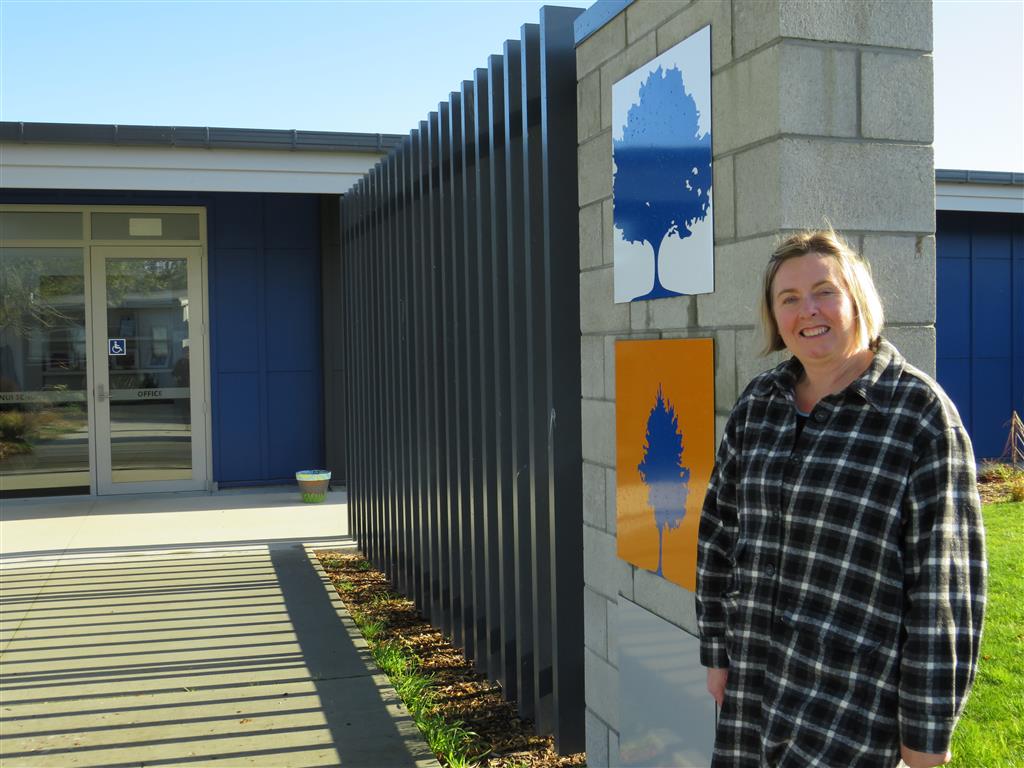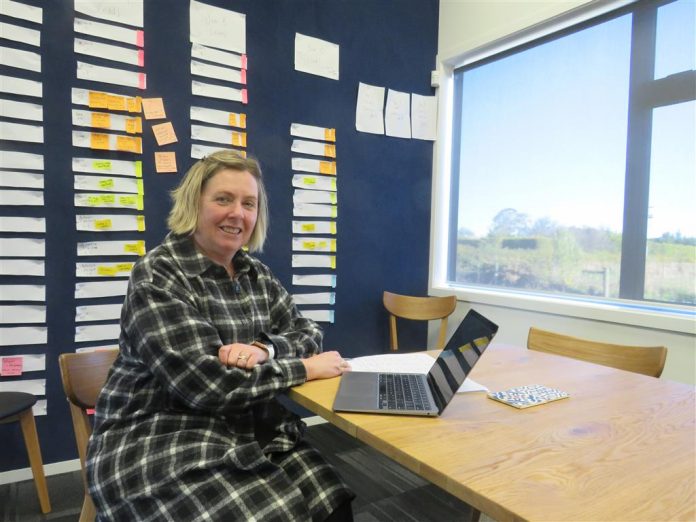Trena Watt has had a 33 year career in education spanning from Southland and Mid Canterbury. Now entrenched at Wakanui School as principal, she says wouldn’t go anywhere else.
Reporter Toni Williams caught up with her on the challenges facing those in education and changes at the school.
Trena Watt took up the Wakanui School principal role this year, although was acting principal for two terms. She took over from former principal Rebekah Clement.
‘‘I wouldn’t go anywhere else. I love the community and I love the kids. The staff are very supportive, and the board. It’s a great place to work,’’ she said.
‘‘Our youngest teachers have been here for four years, beyond that we have quite a few years beyond that.’’ She never intended to be a principal.
‘‘I’ve kind of fallen into everything,’’ she said.
‘‘I started here part time when my kids were young, then I went full time and then just fell into the DP and then fell into this – obviously through the right channels’’ she said.
Trena hasn’t looked back on her decision.
‘‘It was the right thing, at the right time. My kids are now at college, they were here with me. So just everything sort of aligned in that respect.’’
She trained at Dunedin and started her teaching career in her home town of Invercargill in 1990, before moving up the South Island.
She lived in Christchurch for 10 years, before moving to Ashburton with her husband and young children.
She has worked at Wakanui School ever since and says her interactions with the children are her favourite part of the job.
‘‘What I love is that now, I get to be, I feel like it’s kind of like being a grandparent. I just go into the classes put on a silly voice, read them a story and go back out again. It’s quite nice.’’

Trena has been at the school for 12 years, and the last four prior to principal was as deputy principal.
She was also across school lead for the Hakatere Kahui Ako for a year and helped instigate its annual science fair. It will run again in the Sinclair Centre from September 18 -21.
‘‘I did two days a week working for the Kahui, and then as DP and then two days in the classroom.
‘‘I’d almost gone back to part-time teaching, I suppose.
‘‘I loved it, that was the hardest thing I had to give up really.’’
The school, with around 125 pupils, has six teachers and three learning assistants, as well as administrative and technology staff, a teacher of the arts, and a part-time caretaker. Deputy principal now is Dylan Stoddart.
Senior school pupils have their school production of Peter Pan next month at the Ashburton Event Centre, and this week pupils were due to head up to Mt Hutt skiing.
In Trena’s time at the school she has seen the challenges including teacher strikes, and changes.
‘‘There are more and more neuro diverse children, and you know what, that’s not to say they weren’t there, it’s just to say they are more recognised. And we know more as educational people what we need to support them, we are better equipped.
‘‘I think that the demands of the job have got harder, also how hard you have to work for things, simple things like funding – and that’s what I’ve learnt in this role the most.
‘‘It just doesn’t come. Everything you want to do, like professional development and things like that, you can’t just say ‘‘oh well let’s go and do it’’.
‘‘You have to apply for the funding, you have to be accepted for the funding, and then you have to seek it.
‘‘The ministry will (generally) fund you but you have to go through the hoops to get there. And then sometimes you get turned down, of course.’’
Trena only just recently found that out with a funding application declined last week.
She said there is local support such as other principals and teachers, but for next level support to develop a new curriculum – or specific to a school – you need an outside provider and it necessitates a need for Plan B.
‘‘The back-up plan is you pay privately, and the cost of the provider is $1600 a day to come in and work with the teachers, which is just not in a school’s budget, so the only way you can access these people is by getting the funding to access them because their fees are phenomenal.’’
It was a bitter pill to swallow with hours and hours of work put into an application, only to have it rejected.
‘‘I didn’t know about that, well I did know about that but I wasn’t the one having to do the hours.’’
Trena said there was a lot of support through the Kahui and the Mid Canterbury Principals Association.
‘‘We do get together … we are also gathering a network of beginning principals … we are all in that same boat.
‘‘I’m very lucky in my role, because so many of these beginning principals have to teach as well.
‘‘I don’t have the teaching component to my job, that would be mind blowing because that would be very difficult. It dosen’t matter about the size of your school, you’ve still got all the same things to do. It’s really hard.’’
Teaching principals had been recognised in the latest pay round for the first time, but it did not come into effect until 2025, she said.
‘‘They’ve been recognised … but it’s taking its time.’’
Trena has also seen building projects on site have also gone from concept to reality.
‘‘The Ministry (of Education) looks at the size of your school and looks at your property and they decide what you need and they give you money for certain projects,’’ she said.
‘‘Because our school is very well equipped and relatively young, we didn’t need more buildings. We needed an administrative block, that was for sure because our role had grown, as had staff numbers, and we had outgrown the old one.’’
The new administration block includes the principal’s office, a hot spot office, meeting room, greeting space, sick bay and large staff room, as well as an outdoor courtyard for staff.
‘‘Beyond that we didn’t really need anymore classroom or teaching spaces, so it was kind of a case of looking at what we could utilise, could use.’’ she said.
There was discussion on the need for a school hall, or meeting space.
Trena said Wakanui hall, next to the school, ‘‘serves a purpose, but we’ve got a bit big for that’’.
She took the idea of an outdoor gathering space similar to one at St Joseph’s School, Ashburton, and grew the idea for use at Wakanui.
The school now has an outdoor amphitheatre space for school gatherings.




